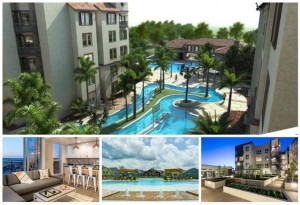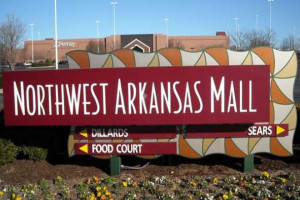
Read more at: https://www.bisnow.com/national/news/commercial-real-estate/college-never-ends-student-housing-for-young-professionals-54864?utm_source=CopyShare&utm_medium=Browser

Read more at: https://www.bisnow.com/national/news/commercial-real-estate/college-never-ends-student-housing-for-young-professionals-54864?utm_source=CopyShare&utm_medium=Browser

In one of the biggest rulings of the year, the SEC passed Title III of the 2012 JOBS Act, allowing non-accredited investors to get in on billion-dollar equity crowdfunding game with just $1k. The move was a critical step towards allowing more people access to prime investment assets. Real estate crowdfunding firm Fundrise (founders Ben and Dan Miller pictured) took advantage by launching the first-ever eREIT, and plans to take advantage of an addition to the JOBS Act that will allow retail-class investors to invest in private companies. In December, Realty Mogul, another leading crowdfunding platform, announced that its investors had made over $20M in principal and interest from its platform.
Read more at: https://www.bisnow.com/national/news/commercial-real-estate/cmbs-the-next-frontier-54505?utm_source=CopyShare&utm_medium=Browser

The modern skilled nursing industry began in 1965 when Medicare and Medicaid programs were enacted. In the 50 years that have passed, the skilled nursing sector has undergone significant transformation. Today, it continues to evolve, bolstered by demand for more specialized and medically-complex services and an evolving policy environment that influences payment and delivery systems.
The current landscape for skilled nursing is being influenced by several factors. First, the sector now serves two distinct patient groups: transitional short-term rehabilitation patients and long-term chronically ill patients. As a result, the clinical capabilities of many skilled nursing operators are growing to provide a full range of post-acute care services, that include rehabilitation therapy as well as specialty care services such as ventilator care and dialysis. An expanded service offering in turn often affects physical space and property expansion requirements as well. In many instances, operators are also moving into other service areas such as home health and hospice care in order to deliver a more complete service offering and diversify their portfolios.
Second, federal government policy changes are shifting financial risk from the government to private managed care and sometimes the provider, while simultaneously holding providers accountable for quality care. The changes that are currently underway in how Medicaid and Medicare structure provider reimbursements, including accountability measures found in the new “Five Star Quality Rating system,” as well as the implementation of the Affordable Care Act, are changing the payor landscape. Alternative payment plans and networks, such as accountable care organizations (ACOs), managed care organizations (MCOs) and bundled payments are quickly displacing fee-for-service payment plans in both Medicare and private health plans. This shift to a risk-based, value-based environment is happening rapidly. Indeed, by 2018 alternative payment plans will account for 50 percent of Medicare payments, up from 20 percent in 2015. Meanwhile, Centers for Medicare and Medicaid Services (CMS) recently rolled out changes to the Five Star Quality Rating System in an effort to increase accountability and raise the quality of care standards. The change in tabulation of facility ratings caused many providers to lose one or two stars, directly impacting reimbursements for certain post-acute care procedures. Skilled nursing and post-acute providers risk being left behind unless they move quickly to adjust to the new policy landscape.
Read entire article in National Real Estate Investor here.
To discuss commercial mortgage financing needs contact Liberty Realty Capital.


A trio of New York investors bought the Northwest Arkansas Mall in Fayetteville for $39.5 million.
The three groups are based in Great Neck, New York, and each purchased a percentage of the 820,000-SF mall. Namdar Realty Group, through NW Arkansas Mall Realty LLC, bought 47.5 percent, as did CH Capital Group through NW Arkansas CH LLC. Mason Asset Management, through NW Arkansas Nassim LLC, bought the remaining 5 percent.
Israel Discount Bank of New York funded the purchase with a loan of $29.6 million. 4201 North Shiloh Drive Holdings LLC, an affiliate of CW Capital Asset Management LLC of Bethesda, Maryland, was the seller.
CW Capital obtained the property in lieu of foreclosure in September 2011 from Midwest Mall Properties LLC, an investment group of John Flake, Doyle Rogers and Sam Mathias. MMP had purchased the Fayetteville mall and malls in Colorado Springs and Oklahoma City for $322.8 million in 2006; it surrendered the Oklahoma City mall in 2009 and Colorado Springs mall in September 2011.
View entire article at Arkansas Business online here.
To discuss commercial mortgage financing in Arkansas needs contact Liberty Realty Capital Group.

Read more at: https://www.bisnow.com/national/news/state-of-market/former-congressman-says-new-tax-law-will-boost-us-real-estate-54334?utm_source=CopyShare&utm_medium=Browser